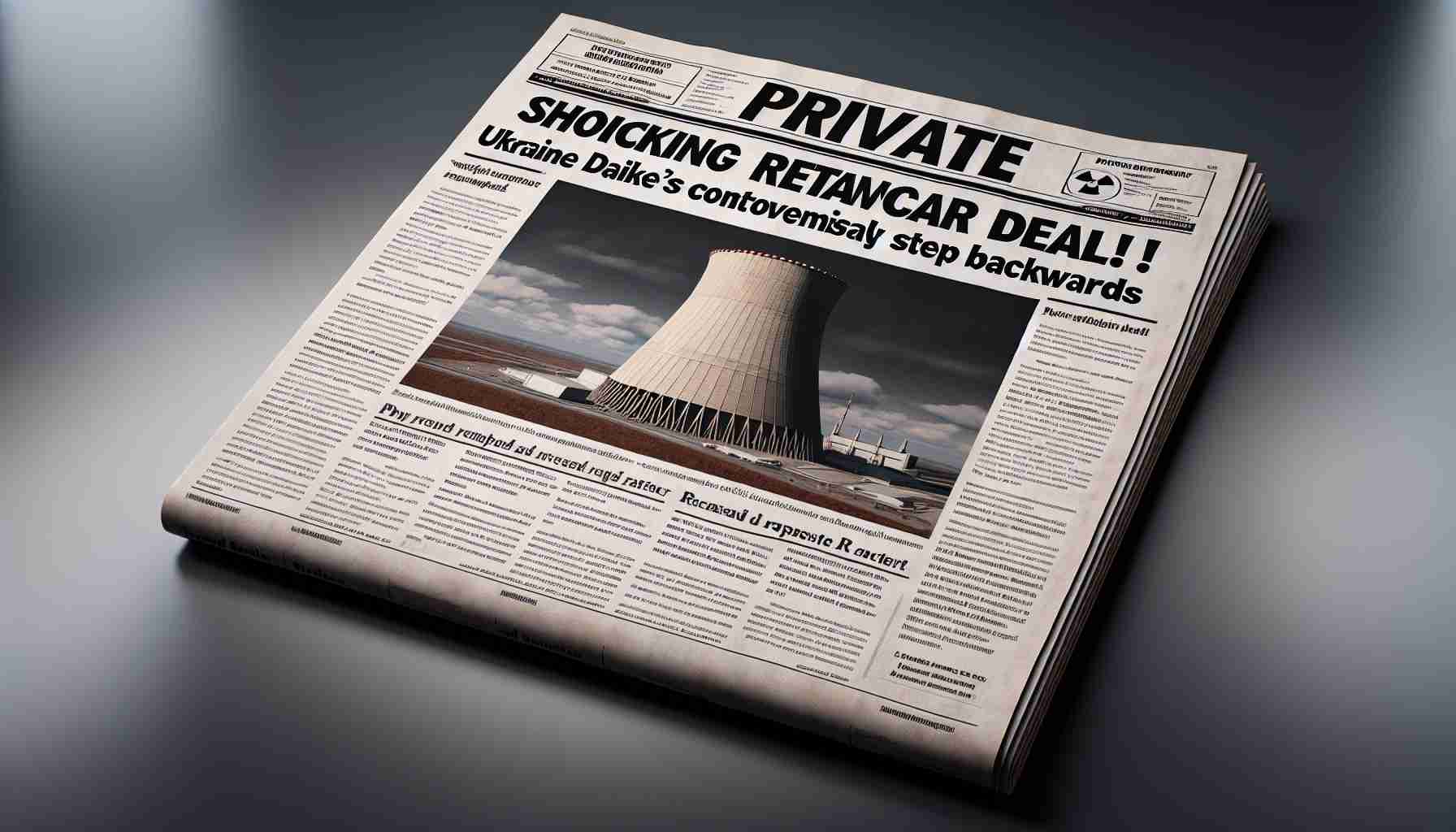Ukrainian lawmakers have stirred debate by sanctioning the acquisition of two aging Russian nuclear reactors from Bulgaria. In a session held by the energy committee on Thursday, a new law was adopted that includes a sudden amendment facilitating this purchase to enhance the Khmelnytskyi nuclear power plant.
The Khmelnytskyi facility, which dates back to the 1970s, was envisioned during Soviet times but was hampered by the Chernobyl disaster, leading to only partial operation over the years. The recent proposal to secure two reactors, originally intended for Bulgaria’s unfinished Belene nuclear project, comes with a staggering price tag of at least €600 million.
Meanwhile, U.S. firm Westinghouse has expressed intentions to construct additional reactors at the same site. The process of financing this contentious purchase relies heavily on foreign loans, though support from the EU seems uncertain. Critics in the parliament highlight the impracticality of such investments amid ongoing conflict between Ukraine and Russia, asserting that the nuclear power approach could negatively impact energy bills.
With vigorous opposition from various lawmakers regarding the potential consequences of the reactor deal, the amendment faces further scrutiny before being finalized. The minister advocating the purchase, German Galushchenko, has been under fire for his urgent push for this initiative, despite rising concerns about transparency and financial accountability. The future of Ukraine’s energy landscape remains uncertain as this critical issue unfolds.
Repercussions of Nuclear Infrastructure Decisions
The recent decision by Ukrainian lawmakers to pursue the acquisition of Russian nuclear reactors signifies a pivotal moment for both Ukraine’s energy sector and its geopolitical stance. This move raises questions about the country’s long-term energy independence and the sustainability of its current policies amidst ongoing tensions with Russia. With a price tag of at least €600 million, the investment is likely to draw scrutiny regarding its feasibility in a war-torn economy where priorities could shift overnight.
Implications for Society and Economy
The potential activation of the Khmelnytskyi nuclear power plant could significantly alter Ukraine’s energy landscape. On one hand, it might enhance domestic energy production in the face of fluctuating energy prices; on the other, it poses risks associated with reliance on aging technology. Critics argue that securing such old reactors could lead to rising energy bills as maintenance and operational costs accumulate, thereby straining households already impacted by the economic fallout of war.
Environmental and Safety Considerations
From an environmental perspective, the decision touches on critical global concerns surrounding nuclear safety. Older reactor designs could pose risks similar to those seen historically—raising alarms in a region still grappling with the legacy of Chernobyl. Moreover, investments in nuclear energy need to be weighed against alternative renewable sources, which could foster greater resilience in energy supply chains while mitigating climate impact.
Future Trends and Energy Politics
As Ukraine navigates its energy strategy, the role of international partnerships becomes increasingly crucial. The push from U.S. firm Westinghouse to establish newer reactors indicates a broader shift towards modernization and diversification of energy sources. However, the uncertain stance of the EU regarding financing underscores the tender balance between securing energy autonomy and ensuring logical and transparent investments in the face of conflict.
Overall, this legislative action not only reflects Ukraine’s immediate energy concerns but also emphasizes the intricate dance of energy politics, environmental responsibility, and economic viability on the global stage.
The Controversial Acquisition: Ukraine’s Nuclear Future at a Crossroads
Introduction
Ukrainian lawmakers’ recent decision to sanction the acquisition of two aging Russian nuclear reactors from Bulgaria has ignited a heated debate within the country. Amid ongoing geopolitical tensions, the move aims to bolster the Khmelnytskyi nuclear power plant, a facility with a complex history rooted in the Soviet era. As Ukraine grapples with its energy needs amid conflict, this decision poses significant implications for energy security, financial sustainability, and international relations.
Key Features of the Acquisition
– Historical Context: The Khmelnytskyi nuclear power plant, initiated in the 1970s, was hampered by the aftermath of the Chernobyl disaster, resulting in only partial operational capacity over the decades.
– Financial Considerations: The acquisition of the reactors is projected to cost around €600 million, a significant investment when considering Ukraine’s current economic challenges and reliance on foreign loans for financing.
– International Involvement: U.S. firm Westinghouse has expressed a commitment to contribute to the expansion of the Khmelnytskyi site, indicating a potential shift toward Western cooperation in Ukraine’s nuclear energy developments.
Pros and Cons of the Reactor Acquisition
# Pros:
– Increased Energy Supply: The addition of the reactors could potentially enhance Ukraine’s energy generation capacity, crucial during times of energy scarcity.
– Technological Advancements: Collaborations with companies like Westinghouse may introduce modern technology and practices to improve operational efficiency and safety.
# Cons:
– Financial Burden: Critics emphasize the heavy economic implications amid an ongoing war, suggesting that such investments could inflate energy bills for consumers.
– Transparency Concerns: Lawmakers have raised alarms about the lack of clarity and accountability surrounding the funding and management of the acquisition process.
Recent Developments and Controversies
The proposal has sparked opposition within the Ukrainian parliament, leading to calls for increased scrutiny and a reevaluation of potential impacts on the nation’s economy. Energy Minister German Galushchenko, who staunchly supports the purchase, has faced backlash regarding the rushed nature of the initiative.
# Potential Market Impact
As the situation evolves, there may be significant effects on both local and international energy markets. Analysts suggest that the outcome of this acquisition could influence electricity prices across Europe, particularly given the ongoing energy crisis exacerbated by geopolitical tensions.
Insights and Predictions
– Future of Nuclear Energy in Ukraine: The successful integration of these reactors could signify a shift towards a more independent and resilient energy framework for Ukraine, but it requires careful consideration of associated risks and benefits.
– Geopolitical Implications: Should the project proceed, it might alter Ukraine’s energy dynamics in relation to both Russia and the European Union, potentially reshaping alliances and energy policies in the region.
Conclusion
The acquisition of the two Russian reactors for the Khmelnytskyi nuclear power plant remains a contentious topic in Ukrainian politics. While the potential benefits align with Ukraine’s urgent energy needs, significant challenges and skepticism persist regarding the financial implications and accountability of the initiative. As the debate continues, the future of Ukraine’s energy strategy hangs in the balance, marking a crucial junction in its ongoing efforts to secure a stable energy landscape.
For more information about Ukraine’s energy policies and developments, visit epravda.com.ua.
The source of the article is from the blog queerfeed.com.br



